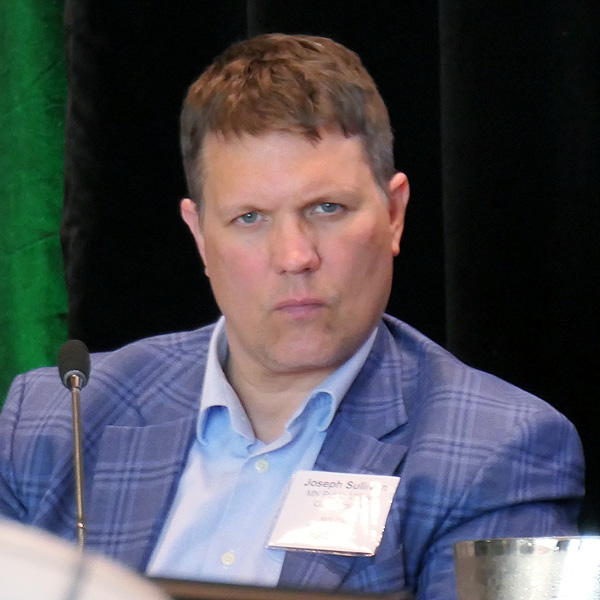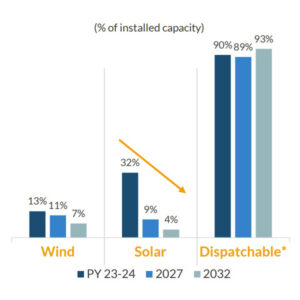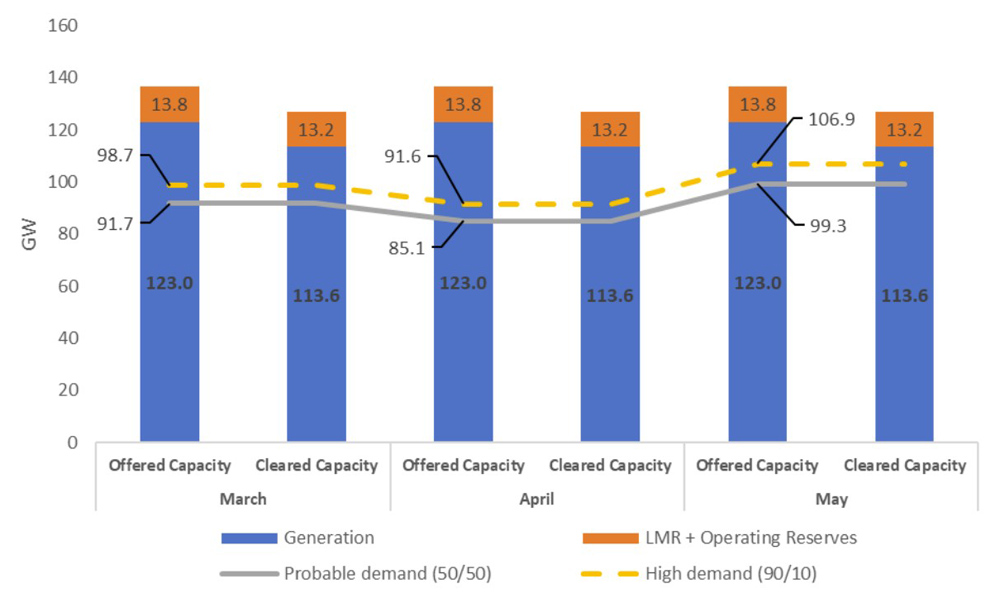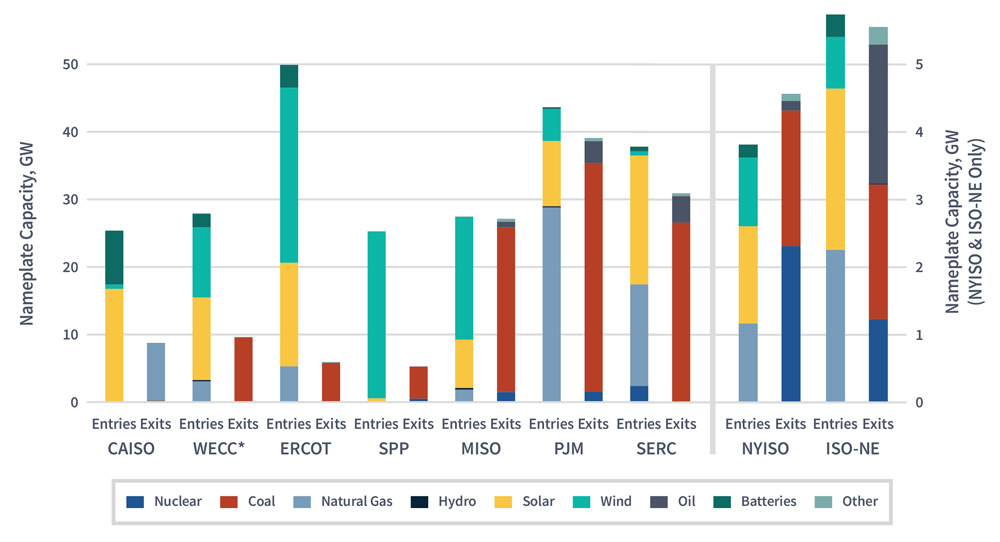FERC on March 21 rejected challenges to its new generator interconnection rules under Order 2023 while offering several clarifications, minor modifications and an extended compliance deadline.
Issued in July, Order 2023 sought to clear backlogged interconnection queues by implementing a first-ready, first-served cluster study process; increasing interconnection customers’ financial obligations; and penalizing grid operators for missing study deadlines. (See FERC Updates Interconnection Queue Process with Order 2023.)
The commission received 32 requests for rehearing or clarification of the order, which required changes to the pro forma large generator interconnection procedures (LGIP), pro forma large generator interconnection agreement (LGIA), pro forma small generator interconnection procedures (SGIP) and pro forma small generator interconnection agreement (SGIA).
The rehearing requests were automatically denied when FERC failed to act on them within 30 days, but the commission addressed all the filings in the 1,063-page order issued at its monthly open meeting (Order 2023-A, RM22-14-001).
Order 2023 is the subject of at least a dozen challenges filed in federal appellate courts since October. Challenging the order are PJM, SPP and NYISO; transmission owners in NYISO and MISO; utilities PacifiCorp, Avangrid, Exelon, Dominion Energy, Florida Power & Light and FirstEnergy; and Advanced Energy United.
‘Not a Problem that Only Exists in Isolated Pockets’
The commission rejected complaints it exceeded its authority under the Federal Power Act and denied it had declared all existing interconnection tariffs — including recently approved revisions by PJM and Dominion Energy South Carolina — unjust and unreasonable.
“The findings in Order No. 2023 relate to the commission’s existing pro forma generator interconnection procedures and agreements, which, among other things, relied on a serial first-come, first-served study process,” it wrote. “The commission did not make any findings regarding specific transmission provider’s tariffs, and it was not required to do so under FPA Section 206. Issues regarding the individual tariffs of specific transmission providers that currently deviate from the existing pro forma generator interconnection procedures and agreements will be addressed on an individual basis on compliance.”
FERC said interconnection queue delays “are a nationwide problem, not a problem that only exists in isolated pockets,” noting that less than 25% of requested interconnection capacity reached commercial operation between 2000 and 2017 in every region, with some regions as low as 8%.
“The commission carefully examined recent queue-reform proposals to identify best practices to implement nationwide. However, no transmission provider has yet adopted all of the reforms in Order No. 2023,” it said, adding that it “would be waiting a very long time indeed if it could not issue a generic rulemaking while any individual transmission provider pursues its own regional queue reform.”
FERC also rejected PJM’s assertion that some transmission providers should be presumed to be in compliance with Order 2023: “While the majority of reforms adopted herein are based on individual and incremental improvements that one or more regions have already implemented, no transmission provider has yet to adopt the entirety of Order No. 2023’s broad suite of reforms,” it said. “Thus, we are unpersuaded by PJM’s arguments on rehearing that ongoing, recently approved interconnection queue reform packages presumably already comply with Order No. 2023. Applying a presumption to transmission providers who recently adopted some similar reforms, but not all the reforms contained herein, will only result in incomplete change that fails to fulfill or further delays the comprehensive reform required by Order No. 2023.”
Changes
The revised order:
-
- specifies that interconnection customers in the queue of a transmission provider using or transitioning to a cluster study process must comply with the transmission provider’s new readiness requirements within 60 days of the effective date of the transmission provider’s compliance filing. The commission also added a new section, 5.1.2, to the pro forma LGIP, stating that transmission providers that have adopted a cluster study process or begun a transition to it will not be required to implement the transition process specified in Order 2023.
- specifies that a network upgrade required for multiple interconnection customers in a cluster may be considered a standalone upgrade if the customers agree to build. It agreed with Advanced Energy United, the American Clean Power Association and the Solar Energy Industries Association that it should revise the definition of standalone network upgrades to maintain the pre-Order 2023 opportunity for interconnection customers to exercise the option to build as part of the cluster study process.
- requires transmission providers to complete their determination that an interconnection request is valid by the close of the cluster request window so that only interconnection customers with valid interconnection requests proceed to the customer engagement window. It set aside paragraph 234 of Order 2023 to clarify that an interconnection customer’s cure period ends at the close of the cluster request window at the latest.
- expands the acceptable forms of security for the commercial readiness and study deposits to include not only cash or an irrevocable letter of credit, but also surety bonds or other forms of financial security that are “reasonably acceptable to the transmission provider.”
The order also provided clarifications on the allocation of cluster network upgrade costs; withdrawal penalties; study delay penalties; availability of surplus interconnection service; operating assumptions for interconnection studies; consideration of alternative transmission technologies; and ridethrough requirements.
Acknowledging the changes it made, the commission also extended the compliance deadline from April 3 to 30 days after the publication of Order 2023-A in the Federal Register.
Commission Acts on 3 Compliance Filings
In separate orders, the commission found Duke Energy had largely complied with Order 2023 but gave Idaho Power and Arizona Public Service lengthy to-do lists. FERC ordered the utilities to file revised provisions within 30 days of publication of Order 2023-A in the Federal Register.
Duke Energy
The commission found that Duke Energy Carolinas and Duke Energy Progress were fully in compliance but that Duke Energy Florida failed to fully comply (ER24-679, ER24-683).
It required the Florida utility to modify or defend its definitions of “scoping meeting” and “transmission provider’s interconnection facilities” because they varied from in the commission’s pro forma LGIP, and it said the utility had not fully complied with the order regarding the allocation of cluster study costs and site control.
Idaho Power
The commission gave Idaho Power a mixed grade, faulting it for “various unexplained revisions throughout” its LGIP, pro forma LGIA, SGIP and pro forma SGIA (ER24-10, ER24-1399).
It cited the utility’s proposed definition of “generating facility” and insertion of “nonrefundable” when describing the $5,000 application fee in its LGIP.
It also required the utility to make minor changes to its provisions regarding cluster studies and other changes to sections concerning affected-system studies, surplus interconnection service and provisional interconnection service.
Arizona Public Service
FERC was most critical of APS’ compliance filing, saying the company had proposed “to retain a significant number of existing tariff provisions that deviate from the pro forma interconnection procedures and agreements” adopted in Order 2023 (ER24-330).
APS said its proposals were justified because the commission approved several APS-specific interconnection changes in a September order — after issuing Order 2023.
The commission disagreed. “Although the commission previously accepted certain deviations proposed by APS in its queue reform filing, the commission evaluated the queue reform filing under the commission’s pro forma interconnection procedures and agreements in effect at the time — that is, those adopted in Order Nos. 2003, 2006 and 845, without the modifications adopted in Order No. 2023,” it said. “As such, the commission’s findings in the queue reform order have no bearing on whether APS has satisfied its obligation to comply with the requirements of Order No. 2023.”
The commission said APS had proposed deviations from the commission’s pro forma LGIP and pro forma LGIA regarding the cluster study process “without demonstrating how such deviations satisfy the ‘consistent with or superior to’ standard.”
It also found APS only in partial compliance in its language on allocation of cluster study costs; network upgrades and interconnection facilities; study deposits; site control; commercial readiness provisions; withdrawal penalties; transition process; operating assumptions for interconnection studies; alternative transmission technologies and modeling; and ridethrough requirements for nonsynchronous small generating facilities.



